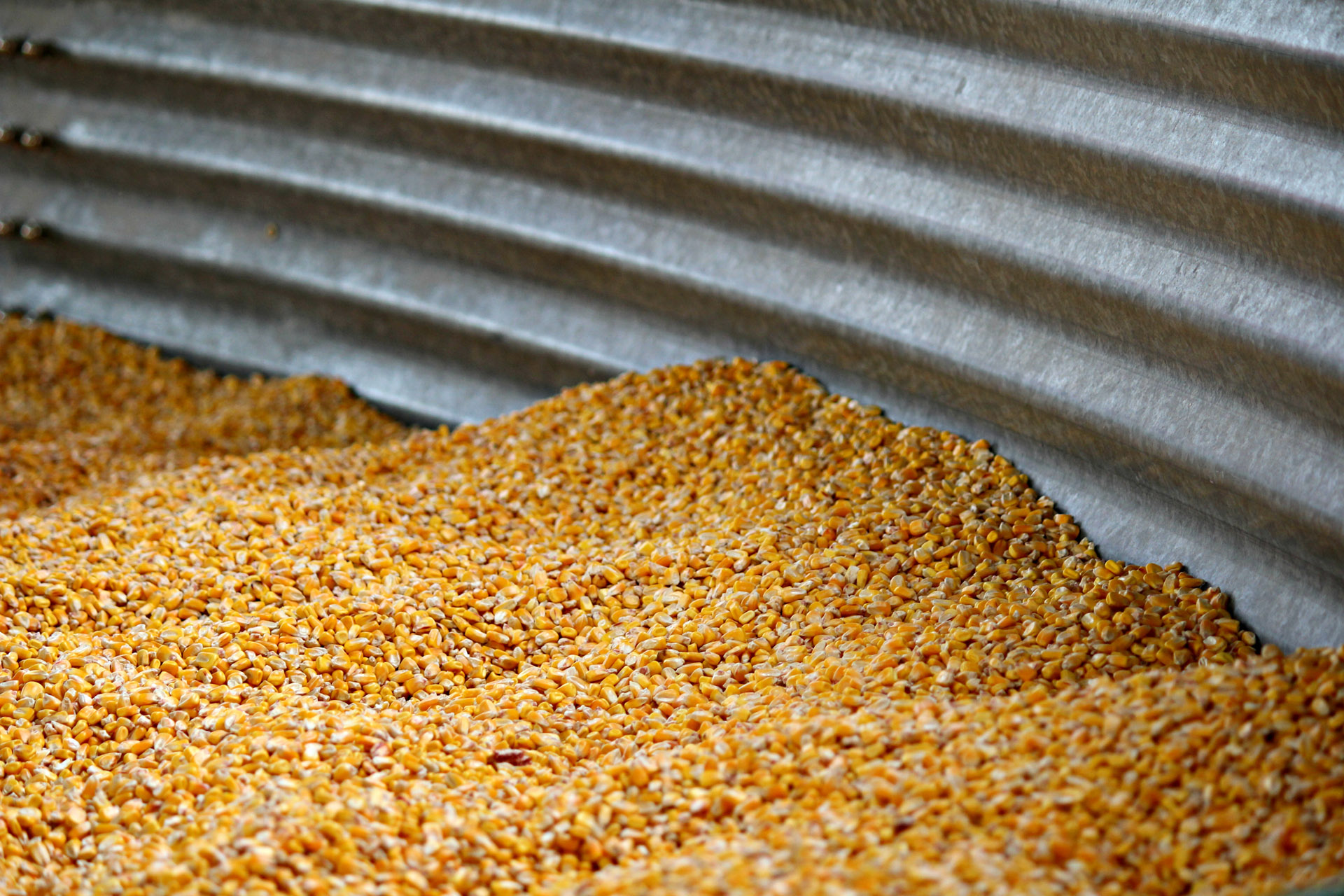“When will mankind be convinced and agree to settle their difficulties by arbitration?”
Benjamin Franklin
We think that Mr Franklin was correct.
Arbitration is a formal, private and binding process where disputes are resolved by a final award made by one or more independent arbitrators.
The process of arbitration is a faster, simpler and less expensive alternative to litigation.
Many trade organisations such as AIC, GAFTA and FOSFA produce their own set of arbitration rules and by incorporating their terms into a contract there is an obligation to use that method of settling disputes.
Commodity traders, shippers, merchants, maltsters, compounders, millers in the UK and across the world often include an arbitration clause (or to a set of arbitration rules by reference, for example, GAFTA 125 Arbitration Rules), in their contracts which refers any dispute arising from that contract for determination by arbitration; that is a group of commercial people from the industry who have experience and knowledge and are, arguably, better versed to determine a commodity dispute rather than settlement through the courts.
Depending on the rules of the trade organisation there is sometimes an appeal procedure so that a dissatisfied party can have a fresh hearing. An award of arbitration is enforceable through the courts and across 159 countries that have subscribed to the New York Convention 1958.
With arbitrators being able to use wider procedural powers and the parties being able to agree on mandatory areas, cost effectiveness and timeliness, parties to a contract may consider a standard binding arbitration clause, or referral to terms and conditions which contain an arbitration clause, in their contracts which refers any dispute to arbitration.
The parties involved in a dispute must consent to arbitration which is normally through a pre-agreed arbitration clause contained in a contract or can even be by consent after a dispute has arisen. This means that parties who have not agreed to dispute resolution by arbitration can still agree that is the best method to be used and can still use rules such as those as the Simple Dispute Arbitration Rules contained in this website, which can be found here.
In England and Wales, the Arbitration Act 1996 is the statute by which arbitrations are conducted but arbitral bodies such as AIC, GAFTA and FOSFA have their own rules which govern many parts of the arbitration procedure which allows, over time, rules to be modified by users of the system to bring them in line with trade practice.

Disputes under AIC Contracts
Formerly known as UKASTA, AIC (Agricultural Industries Confederation) represents the agricultural supply industry in the UK. AIC has over 230 members and represents sectors several sectors within the agrisupply industry including Animal Feed; Crop Protection and Agronomy; Fertiliser; Grain and Oilseed, and Seed.
AIC produces a range of standard contracts normally for use within the UK, ranging from grain and pulse sales, retail seed and seed sales, storage, feed material and fertiliser. These standard forms have a long history of use and are widely accepted as the benchmark for commercial trade in the industry.
The latest AIC No. 1 Grain and Pulses contract is available here
The latest AIC No. 2 Grain and Pulses contract is available here
Disputes under FOSFA Contracts
The Federation of Oils, Seeds and Fats Associations Ltd (FOSFA) is an international trade and arbitral body promoting the world trade in oilseeds, oils and fats. FOSFA has over 1,190 members in 86 countries, who include producers, processors, shippers, traders, consultants, lawyers and insurers.
FOSFA issue a range of standard forms of contracts covering goods shipped CIF, C&F or FOB for soybeans, sunflowerseeds, rapeseed and other vegetable and marine oils and fats, from all origins worldwide. Internationally, 85% of the global trade in oils and fats is traded under FOSFA contracts.
FOSFA arbitrations are governed by the FOSFA Rules of Arbitration and Appeals. Additionally, FOSFA issue the Guide to Arbitration and Appeals. FOSFA standard contract forms and FOSFA Rules of Arbitration and Appeals have a domicile in England and proceedings are governed by the (English) Arbitration Act 1996.
Disputes under Gafta Contracts

The Grain and Feed Trade Association (Gafta) is an international trade association with 1900 members in 100 countries. Gafta offers a range of membership categories which include traders, brokers, superintendents, analysts, fumigators, arbitrators and professionals.
Gafta produces and issues a number of standard contract forms on a broad range of categories and it is estimated that 80 per cent of the World’s grain is shipped incorporating a Gafta contract. Gafta also runs approved registers for superintendents, analysts and fumigators.
Gafta runs an arbitration service for parties incorporating Gafta standard form contracts or expressly using their arbitration rules to resolve disputes in an efficient and timely manner. Gafta Arbitration Rules No. 125 are those predominantly used where the procedure provides for dispute determination by a sole arbitrator or a tribunal of three arbitrators and an appeal process where five arbitrators are appointed by Gafta. Gafta Arbitration Rules No. 126 provide for an expedited, lower cost procedure. Gafta also offer a mediation service.
Philip Noyce Ltd – Simple Arbitration Rules
A low cost option for resolving small scale disputes

Although the majority of contracts are performed successfully, there are some circumstances where they are not. For example, non-performance by one of the parties, a defect in the quality or the condition of goods could mean that one party is out of pocket.
Where goods are sold under AIC, FOSFA or Gafta terms, the situation is clear. The arbitration clause incorporated into the contract means that the dispute is referred to arbitration under those rules.
In some cases, arbitration may have not been agreed and the parties would like to appoint an expert in the trade who can easily and cost-effectively determine the dispute. Or, the parties may agree to diverge from the method of dispute resolution in the contract because there is a better option.
Philip Noyce Ltd – Simple Arbitration Rules gives a low-cost solution in resolving small scale disputes. The aim of the Scheme is for speed and efficiency and, importantly, to keep the cost of the outcome to a sensible financial level.
Cost is achieved by a short, reasoned award by the arbitrator. Speed is achieved by the parties agreeing to exchange submissions in a short time frame, with arguments limited to the salient points. As long as there is no delay, the parties should get an award 50 days from the signing of the agreement.
Some common questions are:
What is the scheme?
The scheme is an easy and transparent way for resolving small cost disputes in the agricultural commodity world. It has been developed to have a fixed cost fee for the arbitration. The arbitration results in a legally binding award by the sole arbitrator. Essentially, it can be used as a method for resolving most disputes if both parties agree to it being used.
The decision of the arbitrator is legally binding and enforceable through the Courts.
There is no limit on the amount of the claim, but parties should note that the arbitration rules are condensed in order to deal with low cost, simple disputes. If the arbitrator considers, even after the exchange of documents, that the case is too complicated or contains too many contentions to be a simple dispute then he reserves the right to charge an additional amount by notice to the parties.
Should I Use Representation?
If the dispute is complicated, then it sometimes makes sense to contract someone who is an industry specialist who can help with procedure and draft submissions. There is fundamentally nothing to stop a party preparing their own statement of case
How Long Will It Take?
If everything goes according to plan and both parties send the arbitrator their submissions on time and there is no other elements involves (for example, disclosure) then after an initial 7 days (for the arbitrator to accept the appointments and confirm that there is no conflict of interest and for the claimant to make a deposit for the fees), the normal practice is for the claimant to send their statement of case to the arbitrator by email, upon which, the respondent has 7 days to make any defence. The claimant then has a right of reply which is 7 days after. An oral hearing will make the process much longer but after the exchange of arguments, the arbitrator will formerly close exchanges and an award is generally available 21 days after that time. The target is that an award is issued 50 days after the initial outset.
Is There A Hearing?
It is said that everybody wants their day in court. To keep the cost to a minimum, an oral hearing will only be held where both parties request that one be held. A single party can request an oral hearing, that is where the parties, or their representatives, present their oral submissions to the arbitrator, but this is at the absolute discretion of the arbitrator
The formal Rules are here:
Philip Noyce Ltd – Simple Arbitration Rules
(effective 7 April 2016)
- These Rules apply to the Philip Noyce Ltd – Simple Arbitration Scheme.
- The object of the scheme is to provide a final and legally binding decision in the form of an award 50 days of the parties signing and returning the arbitration agreement. This is defined as when arbitration is commenced.
- The award is final and binding on the parties and there is no appeal procedure. If the arbitrator considers, even after the exchange of documents, that the case is too complicated or contains too many contentions to be a simple dispute then he reserves the right to charge an additional amount and will give such notice to the parties. An additional deposit shall be paid to the arbitrator at that time.
- The arbitrator shall not be interested in the transaction directly or shall not be retained financially by any party to the arbitration.
- The arbitration agreement form is available on request and must be completed by both parties who shall additionally provide a short outline of the dispute.
- The Claimant, no later than 7 days after the arbitration agreement has been signed and returned, shall make a deposit payment of £250.00 plus VAT to the arbitrator.
- In the event that any amount due is not paid within 7 days of becoming due then the arbitration claim shall lapse and is time barred.
- The fixed fee for a dispute under these rules is £600.00 plus VAT at the applicable rate. If a hearing is granted then the arbitrator’s fee will be £175.00 per hour to include, but not limited to, the hearing time, and any travelling time, preparation time and disbursements. An additional deposit, at the arbitrator’s first request, shall be paid in the event of a hearing being provided. Any cancelled oral hearing will be charged at a daily rate.
- The arbitrator shall issue a timetable at the time of accepting the appointment. The Claimant shall serve their Statement of Case within seven days of the arbitrator’s acceptance. The Respondent’s Defence shall be submitted within seven days of the receipt of Claimant’s Statement of Case. The Claimant shall have a further seven days to serve a Rejoinder which shall answer only new points raised by the Respondent. Following that, it will be the arbitrator’s intention to close exchanges and determine the matter.
- All notices and submissions shall be simultaneously copied to the other party and the arbitrator. Notices and documents shall be submitted be email. A valid email address shall be advised to the arbitrator and the other party upon the agreement being signed.
- An oral hearing will only be held where both parties request that one be held. A single party can request an oral hearing, but this is at the absolute discretion of the arbitrator. An additional deposit, at the arbitrator’s first request, shall be paid in the event of a hearing being allowed. There shall be no external representation at an oral hearing unless by the agreement of the parties.
- It is for the Arbitrator to decide if a party can recover any costs of the arbitration from the other party including legal and/or representation costs.
- When the award is ready for publication, the arbitrator will contact the parties and the award shall be released to both parties upon payment of the final amount due.
- The Arbitration Act 1996 or any amendments or alternative substitute legislation shall apply to the arbitration and the Arbitrator shall have all the powers available to an Arbitrator under that Act. English law applies.
- If the parties settle their dispute after commencing Arbitration, they must inform the Arbitrator immediately who will return any deposit to the Claimant which has not been used or inform the parties of any additional amount which is due.
- Both parties are jointly and severally liable for any fees.
- These rules and the fixed fee may be revised from time to time. Any changes will not affect arbitrations already commenced.

